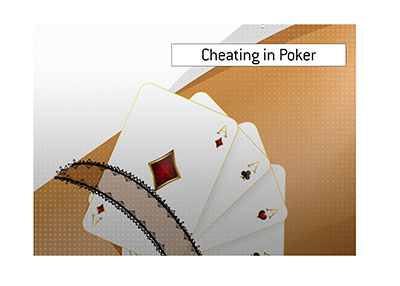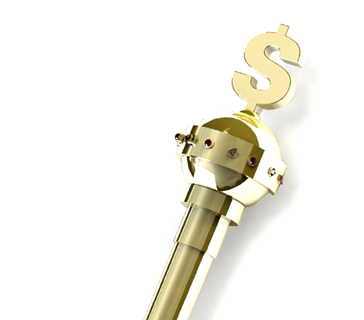A Look at the Different Ways That People Will Cheat in Poker
Q: How Do People Cheat in Poker?
A: Cheating has always been a part of the game of poker. If there is money to be made by cheating, people will try it to gain an advantage.
Cheating in poker has changed over the years as much of the action has moved from brick-and-mortar games to online. Cheating in poker has become easier with the mass migration to online poker over the past couple of decades. Some people have been famously caught for cheating in online poker, while others have gotten away with it entirely.
 Let's look at the different ways that people will try to cheat others in poker, starting with "live" poker and moving to online.
Let's look at the different ways that people will try to cheat others in poker, starting with "live" poker and moving to online. Live Poker
1. Marked cards.
First off - cheating at a casino is very difficult. Most of these various forms of cheating only work in home games - so, if you are playing in a home game, especially for large sums of money with people that you don't know, pay close attention in order to avoid getting cheated. If you feel that something is off, simply leave the game.
Marked cards refers to when somebody makes small marks on a card in order to tip them off as to what other people are holding in their hand.
For instance - let's say that somebody has very subtly damaged the corners of all of the Aces in the deck. If you are holding two Aces as your hole cards, an opponent may know what you are holding and fold their hand.
Some people may try to put very small scratches on a card instead of damaging the corners. While you are playing, make sure to take a close look at the cards, especially in home games.
2. Cameras.
Again - if you are playing in a home game where there is a great deal of money involved, keep in mind that a scammer may have installed hard-to-notice hole card cameras in order to know the cards that you are playing. Or, there might be cameras set up behind you so when you check your cards, someone might be able to see what you are holding.
3. "Spotter".
Is somebody standing behind you, watching the action? If so, they might be trying to see the cards that you are dealt when you check them, and they may be signalling somebody else at the table.
4. Dealer Using Card Shuffling Tricks To Give Advantage To Player(s) at Table.
If somebody is shuffling the cards themselves and not using a card-shuffling machine, they may be attempting to give an advantage to somebody else at the table.
This was demonstrated in the movie "Rounders", where "Worm" was using card shuffling tricks to attempt to give an advantage to "Mike". Again, you need to keep an eye on things in your game, and if you notice anything that is fishy, simply leave the game.
-
Online Poker
1. Multi-accounting.
This is less prevalent in this day-and-age, though this was a massive problem back when the "poker boom" first started.
Good players would make and enter multiple accounts into tournaments in order to gain an advantage over the rest of the tournament. Who can forget players like "JJProdigy", who was famously caught for multi-accounting?
Poker rooms have gotten much better at detecting this type of behaviour, though it still exists, especially on the smaller sites.
2. "Ghosting".
This is a much harder method of cheating for sites to detect.
Let's say that you are going deep in a tournament. Your backer, who is a very good poker player, is watching you play. If you win this tournament, you will collect over six figures.
Your backer calls you up. "I'm going to coach you through the rest of this tournament - tell me what you have in every hand and I'll tell you what to do". This is ghosting, and this is against the rules of any online poker site.
If you are suspected of ghosting, an online poker site will analyze your play and likely call you up, asking you to explain your mindset as you played various hands. If they feel as though your answers don't make sense, given your level of play, they may end up denying your payout.
3. Collusion.
Are two or more players acting as a team? Are they soft-playing each other? Two or more players colluding and acting in concert is illegal when it comes to online poker. You can't do it.
4. Bots.
This is a bigger problem on the smaller sites. Some people will attempt to create bots to play "perfect" poker all day and all night. Poker bots are a big problem for online poker sites, as the "bot" technology has gotten better and better, especially in Limit Hold'em games. Bots are not allowed on online poker sites.
5. Account Sharing.
Let's say that there is a big leaderboard challenge taking place on one of the big online poker sites. The more that you play in a month, the higher up on the leaderboard that you will be.
Some people will attempt to share an account in order to essentially play all day and move up the leaderboard, gaining an unfair advantage over the rest of the player in the challenge. This is cheating, and this is not allowed.
6. "Superusers".
Back in the Ultimatebet/Absolute Poker days, people involved in the company were able to see every player's hole cards. If you want more information on this scandal, Google "PotRipper" and go from there.
Back to Answers

